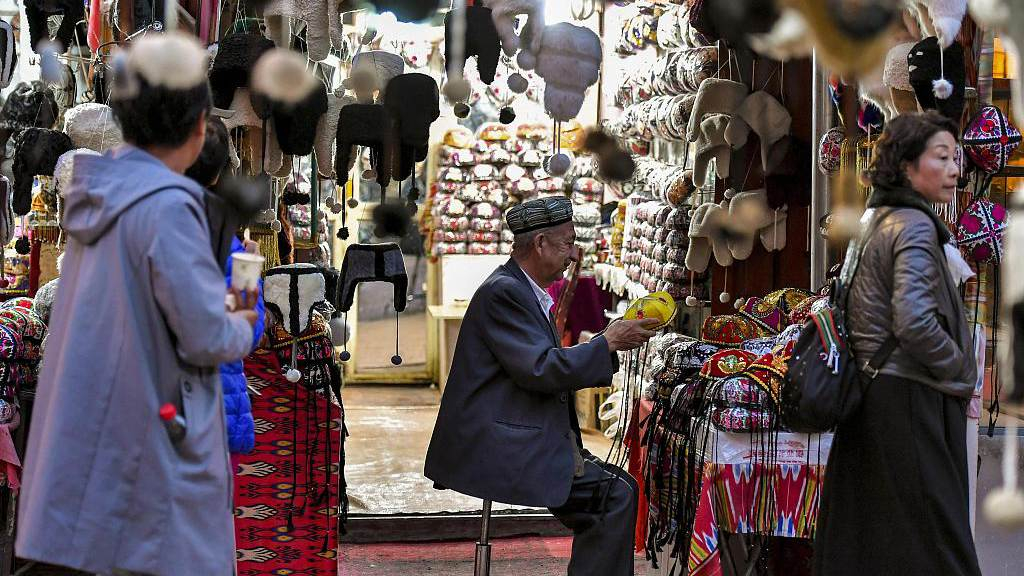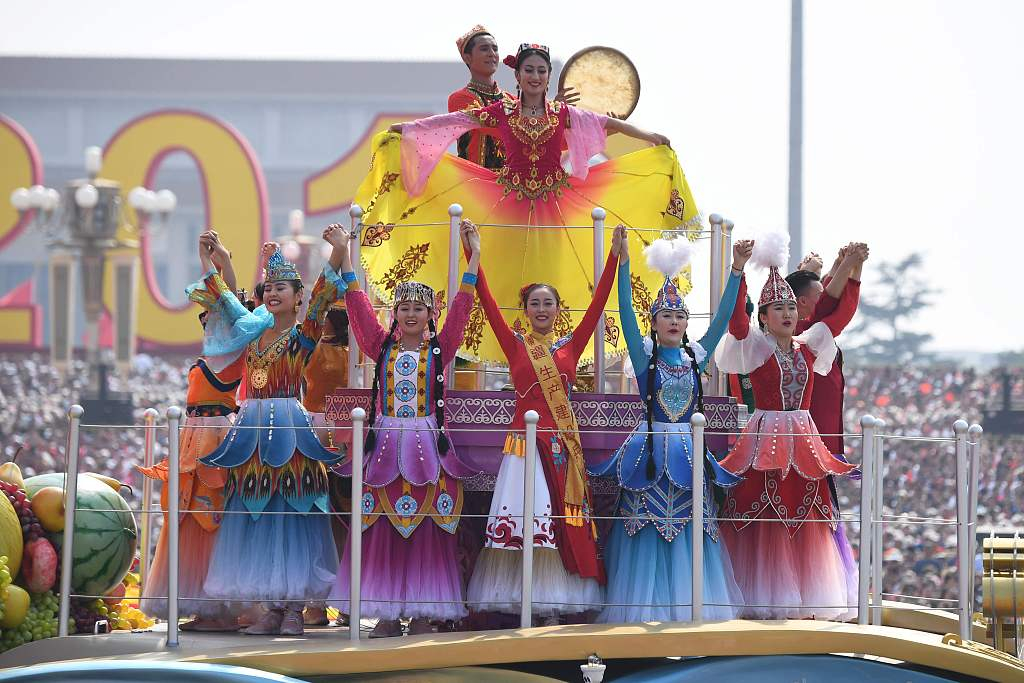
A hat shop in Kashgar City, Xinjiang Uygur Autonomous Region. /VCG Photo
A hat shop in Kashgar City, Xinjiang Uygur Autonomous Region. /VCG Photo
Editor's note: Zhao Yuanzhen is an opinion editor with CGTN Digital. The article reflects the author's opinion, and not necessarily the views of CGTN.
Facts should speak louder than words. But in real life, bad news always travels fast. And that is what has been happening in the global discussion of China's Xinjiang policy, as blatant lies have been used to smear Chinese government.
On Saturday, China's Xinjiang Uygur Autonomous Region released a statement in refuting U.S. Secretary Mike Pompeo's claim that family members of the Xinjiang "activists" and "survivors" of the vocational camp are being "harassed" by the Chinese government.
The truth is there has not been any mistreatment, and individual stories that have been brought up in Pompeo's speech have no credibility as well. For example, contrary to Furkhat Jawdat's claim that his mother was imprisoned, she has been living in her home and also has regular contacts with Jawdat.
But even with the release of the statement, Pompeo's attack on China's Xinjiang policy has a massive market in international society. The words used by U.S. politicians and Western media such as "human rights" and "repression" raise such loud alarms in people's ears that they do not bother to try to understand Beijing's Xinjiang policy.
The truth is, just like "pro-democracy" should not be used to give a green light on Hong Kong protesters' violence, the term "human rights" should not become the passcode for the U.S. to put the finger on other countries' domestic affairs. The very definition of human rights has been appropriated to advance America's global interest.
The U.S. politicians actively paint a picture of brutality and repression of Xinjiang authorities and vocational training centers, but they never speak about the effectiveness of Xinjiang's anti-terrorism policy. To anyone who has experienced or witnessed the July 5 riot in Urumqi that killed 197 people, it is a hailed achievement that there has not been any terrorist attack in Xinjiang in three years consecutively.

Performers stand on the Xinjiang region float during the National Day parade in Beijing, China, October 1, 2019. /VCG Photo
Performers stand on the Xinjiang region float during the National Day parade in Beijing, China, October 1, 2019. /VCG Photo
There can be no human rights to protect if even their life safety cannot be guaranteed. Perhaps U.S. politicians have forgotten the human rights of the ordinary people in Xinjiang who are dying to live a peaceful life without the threat of terrorism.
Behind this progress are coordinated efforts by Xinjiang authorities to curb the development of terrorism. From 2014, the local government has arrested around 13,000 people engaged in terrorist activities and captured over 2,000 explosive devices. These numbers prove that Xinjiang is still under serious threat of terrorism, and that the zero terrorist attack in three years achievement is a hard-won success.
The international experience in anti-terrorism has mainly focused on law and military methods. But while military means can quickly and effectively respond to organized terrorist activities, sometimes the violence inflicted in this process might intensify new hatred. It would be more challenging to eliminate terrorism or even provide more materials for terrorism promotion. The U.S. military activities in the Middle East and its "War on Terror" strategy have demonstrated such danger.
China has also reflected its anti-terrorism strategy in the past and the establishment of the vocational training centers has been one of the critical steps in educating people who are on the verge of engaging in terrorist activities.
In the meantime, the central and local governments have also implemented measures to promote Xinjiang's economy. In 2019, over 150 million visitors traveled to Xinjiang, a 40-percent increase on a year-on-year basis. Xinjiang has also shared the great achievements of China's reform and opening-up: from 1978 to 2016, Xinjiang's per capita GDP has increased 128 times.
Doesn't the reduction in poverty and improvement in income also count a crucial part of human rights? In 2018, there are over 15,000 terrorist attacks across the globe. Although the number has decreased by 33 percent compared with 2017, terrorism still poses a critical threat to the world. Instead of rushing to slashing against China's Xinjiang policy to gain more political capital, perhaps the West should take a step back and rethink the logic behind China's anti-terrorism achievements.
(If you want to contribute and have specific expertise, please contact us at opinions@cgtn.com.)